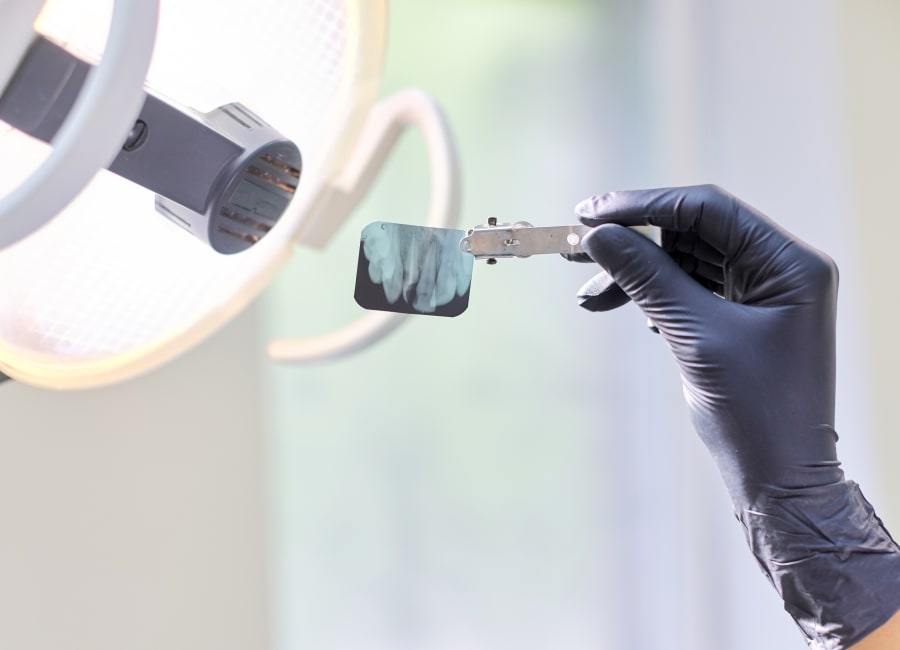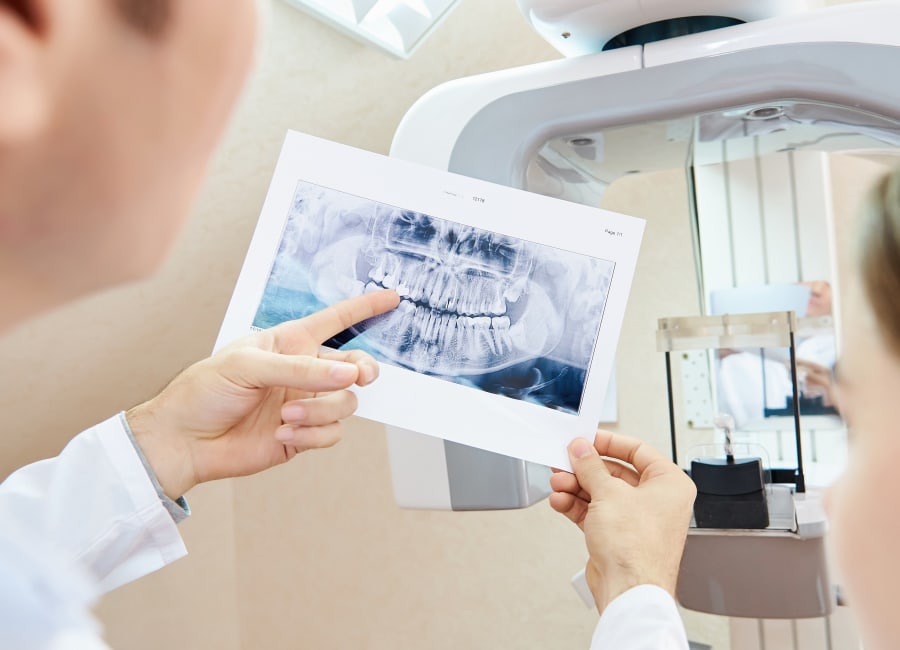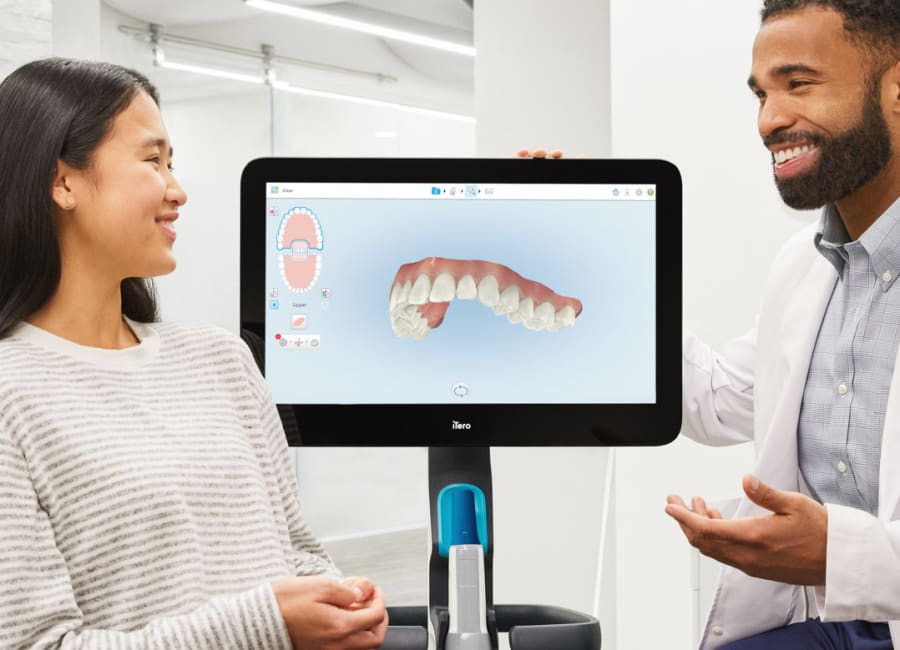The Role of Technology in Orthodontics
At our Meridian and Laurel orthodontic clinics, dental technology plays a key role in just about everything we do.
The technology we use helps us understand the nature of your orthodontic issue in detail. It allows us to make an accurate and specific diagnosis, which in turn means highly customized treatment planning to meet your specific needs and goals in the safest and most efficient way possible.
Our technology also guides us in developing each unique treatment plan and, if necessary, in adjusting plans as treatment progresses.
During each step of your orthodontic journey, you'll encounter our technology as we use it to communicate with you about your orthodontic condition, the treatment plan, and how it's all going.
Read on to learn more about the types of technology you'll see in our office.

Digital X-rays
Digital X-ray technology uses digital sensors and a computer to produce high-quality internal images of your teeth and gums.
These detailed images allow your orthodontist to see the precise position of your teeth under the gums, as well as the surrounding bones, and to make a diagnosis of your orthodontic condition. Digital X-rays also show things that may impact your orthodontic treatment, like developing tooth decay and previous dental restorations. All of this information is essential to diagnosis and orthodontic treatment planning.


Panoramic X-rays
A panoramic X-ray is a two-dimensional dental X-ray that can capture a single image of the entire mouth. This image includes the teeth, the upper and lower jaws, and the surrounding structures and tissues.
Panoramic X-rays are crucial when it comes to assessing the presence or absence of specific teeth and their roots, their form and structure, their eruption sequence, and their relationship to one another in the jaws. These images provide your orthodontist with key insights that play a role in treatment planning and assessment.
iTero® Intraoral Scanner
The iTero intraoral scanner is a handheld imaging device. It creates highly detailed, three-dimensional digital impressions of the hard and soft tissues of the mouth. The process is minimally invasive; you'll find it's a lot like a dental exam. You simply open wide, and your orthodontist will move the device around your mouth, capturing images. It only takes a few minutes to complete.
The system then renders 3-D models of the inside of your mouth, which are displayed in real time on a touch screen.
